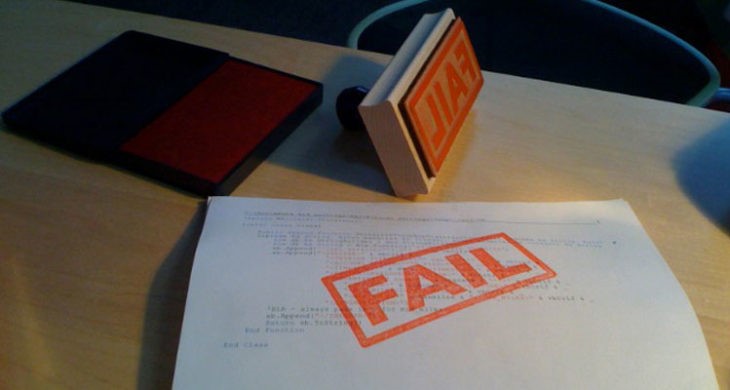
8 Reasons Why Students Should Not Plagiarize
Why should students not plagiarize? It’s unethical, bad for their grades, and affects their professional careers. There are many other reasons to not plagiarize, including the ones mentioned above.
This article will explore major 8 reasons why students must not plagiarize their academic work.
It is Unethical
First, plagiarism is unethical. Students are expected to graduate as good citizens in society, and they cannot do that if they plagiarize. Plagiarism is a wrong practice, as it cheats other students out of valuable knowledge.
In addition to being unethical, plagiarism obscures the sources of the original author’s ideas. By referencing sources in essays, the chances of plagiarism are minimized and it’s an accepted way to give proper credit.
The term “echo plagiarism” refers to a form of writing in which a student produces someone else’s work without giving proper credit. This can be done through rewording, utilizing another writer’s structure, or failing to properly reference a secondary source.
Papers with no source attribution are usually a complete mess. Fortunately, plagiarism checkers are available to help students avoid this sloppy practice. If students check plagiarism reports before submitting, they could address the problem by themselves.
Ruin Learning Skills
Second, plagiarism destroys the ability to think independently. If students aren’t able to come up with original ideas, they won’t be able to perform well on exams. Creating original content allows students to learn new techniques and develop their unique ideas.
Plagiarism occurs when students copy another people’s work. This can be problematic for students because they do not have a clear understanding of plagiarism. Students at all levels understand that plagiarizing is against the rules, but they are not always clear on how they should respond to cases of plagiarism.
Many students plagiarize intentionally, but there are also situations in which they don’t have time to devote to learning a subject thoroughly. This typically occurs when students are pressed for time and aren’t well organized.
The purpose of learning is lost when students plagiarize, as they are attempting to rush through an overwhelming task. For this reason, they often turn to plagiarism to avoid deeper learning.
Destroy Professional Career
If you are a student, committing plagiarism is not just an academic offense; it can also damage your professional reputation and hinder your professional career. Plagiarized work can result in expulsion from a university, downgrading in a career, and diminished credibility.
Plagiarism also impacts your learning curve and can jeopardize your professional prospects. You may lose your chance at a better job, and you may even be booted out of school altogether.
Overall Bad Influence
A strong student-instructor relationship is vital for successful learning. Plagiarism damages this relationship and changes the student’s respect for the instructor. Furthermore, plagiarism ruins the instructor’s enthusiasm and view of the student.
Additionally, academic dishonesty inflicts resentment among other students. Likewise, a classmate plagiarizing an assignment negatively affects other students in the class who are doing their work.

The negative consequences of plagiarism include embarrassment, humiliation, and poor mental health. Students who are caught doing plagiarized work will have to explain their actions and whether they understand the wrongdoing.
Then, they will have to face an embarrassing hearing and a history of dishonesty. To avoid all these issues, students should carefully check their papers before submitting them to avoid plagiarism.
The effects of plagiarism can be far-reaching and may affect a student’s career. It can also harm their family life if it ends in expulsion.
Harmed Reputation
The consequences of plagiarism are far-reaching for students, their institutions, and their professional lives. Not only does plagiarism hurt academic reputations, but it can also cost students their jobs and even their careers. After all, no one likes being slandered and embarrassed. So, students should always remember that plagiarism can ruin their reputations.
To avoid being badly reputed, students must take excellent notes when they are studying. They should also include citations that indicate the sources of the material they’re referencing.
Furthermore, students should focus on their arguments and references, and not plagiarize from other sources. If students leave this task until the last minute, they may end up plagiarizing out of desperation. But such behavior is not worth it!
Whether a student plagiarizes because he or she is in a rush to get an A, students should not plagiarize because plagiarism damages their academic reputation. If it is found out, they are usually notified and punished accordingly. It can be embarrassing and a shame for students, so they should always check their papers before submitting them.
Legal Consequences
The consequences of plagiarism are severe. People accused of plagiarism can lose their jobs and even their academic reputations. The consequences of plagiarism also range from financial penalties to losing the rights to original works.
In addition to the negative consequences, plagiarism can lead to legal troubles. The student who plagiarizes may violate copyright laws and be sued for their actions. The author of the original work may even sue the student in court.
Plagiarism can also lead to jail time and community service. Even if the culprit was not found guilty of plagiarism, he or she may be penalized for future plagiarism.
Eventually, plagiarism can even be made a crime. Despite these consequences, many people choose not to plagiarize, and this is the best way to protect their reputation.
Poor Grading
No doubt plagiarizing is against the rules however the effects on academic integrity are far greater. For instance, plagiarized content can be a risk for your grades. In this way, plagiarism can lead to a student failing an exam.

If you’ve ever read a college or university’s plagiarism policy, you’ve heard that the consequences range from having to redo an entire paper to even being expelled. However, while most instructors are more forgiving of accidental plagiarism, you’re not likely to get away with it without any consequences. That’s why you should make sure you’re citing your sources correctly.
When a teacher notices that a student has used a previous paper or essay without credit, they’ll scrutinize future papers more closely. In some cases, it may lead to expulsion, loss of a scholarship, or degree revocation. Plagiarism can also hinder a student’s entrance into the next institute, which makes the situation all the more serious.
Spoils Institute Reputation
Plagiarism is not only unethical, but it also has negative effects on a school’s reputation. Pupils who copy others’ papers, regardless of the source, can hurt the reputation of their college or university.
Repeated plagiarism cases can lower the value of a graduate’s degree or graduate program. In addition to reducing the value of a degree, frequent plagiarism cases can also make it difficult for universities to repair their reputations.
This devalues an institute’s reputation in the eyes of the international market, which may not want to hire someone from that institute. This way, plagiarizing also lowers the reputation of the institute in the entire region.
Conclusions
Having your work accused of plagiarism is a horrible experience. If you’ve been accused of plagiarism before, it can leave you feeling defeated and questioning why you’re studying at a university in the first place.
The consequences of plagiarism can be severe – failure in class, academic probation, and even expulsion from school. This is why all students need to take the necessary precautions to ensure that their writing is original and authentic.
Firstly, plagiarism is unethical. Moreover, plagiarism ruins a student’s reputation. Finally, it deprives them of valuable knowledge. Either way, plagiarizing undermines the ability to think critically. To avoid such problems, students should always acknowledge the source and write plagiarism-free assignments.


Leave a reply
You must login or register to add a new comment .